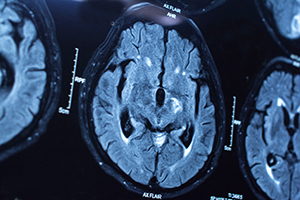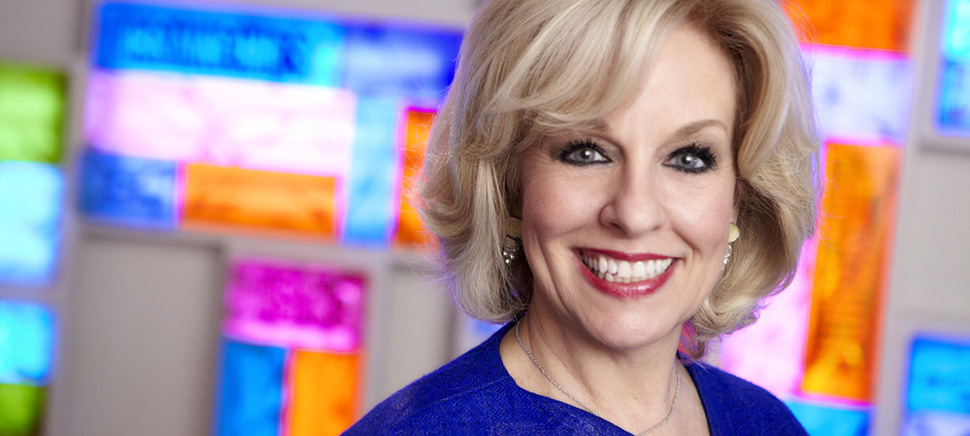#MYBRAINHEALTHMATTERS TEACHES GOOD BRAIN HEALTH HABITS, DISPELS THE MYTHS
Think about this: Good brain health is about learning the proper way to feed, nurture and strengthen your brain, while eliminating activities that can do it harm.
That’s one of the central themes of #MyBrainHealthMatters, a social media campaign launched in May by the Center for BrainHealth at The University of Texas at Dallas.
Sandra Chapman, Ph.D., founder and chief director for the Center for BrainHealth, said the campaign’s “biggest message is our health begins, and ends, with our brain health.”
#MYBRAINHEALTHMATTERS NURTURES GOOD BRAIN HEALTH
#MyBrainHealthMatters is designed to shift the way we think and act about our brains, emphasizing that even subtle changes in our lifestyles can help nurture brain health.

Good brain health is the focus of the #MyBrainHealthMatters social media campaign. Photo: iStock
Many people don’t think about their brains until it is injured, diseased or shows the impact of aging, Chapman said. Improving brain health also is something that healthy people should address, as well.
Chapman said the campaign reinforces the good things that people can do for their brains while dispelling some of the myths about brain health.
Near the top of the myths is that multitasking is good for you because it stimulates and exercises your brain.
That’s wrong, said Chapman, who likened multitasking to “tobacco for your brain.”
Chapman said that the modern world is pushing more people to take on more activities at once, but that we’re really not multitasking. Rather, we’re toggling back and forth from one activity to another.
“Science now is very clear, our brain is not wired to multitask.” – Sandra Chapman
It’s stressful, and it can affect your overall and brain health negatively.
“Science now is very clear, our brain is not wired to multitask,” Chapman said.
MULTITASKING PRODUCES LESS PRODUCTIVITY, NOT MORE
Multitasking leads to less rather than more productivity, it fragments your thinking, and it slows you down, she said.
She said the center teaches people that they need to use innovative thinking and synthesized thinking, and to stop multitasking, information overloading, and excessive information downloading.
Chapman said that the “downside is that chronic multitaskers have a shrunken hippocampus,” part of the brain that is believed to be the center of emotion, memory, and the autonomic nervous system.
“The brain is more complex than physical exercise, and we teach people steps to take that are shown to strengthen neural connections and increase metabolic strength,” Chapman said.
So far, the “MyBrainHealthMatters campaign is gaining traction with the public, said Shelly Kirkland, public relations director for the center.

Ground was broken in October for the new Brain Performance Institute in Dallas. (Photos courtesy Center for BrainHealth)
“It’s good,” Kirkland said of the reception to the campaign. “We just launched, and so we’re trying to garner more attention worldwide.”
She said the Center for BrainHealth is using the hashtag whenever possible and using clear messages in its social media posts such as: “You are never too young or too old to adopt healthy brain habits that strengthen your brain’s capacity to think smarter,” and “Don’t Overload Your Brain. Prioritize your to-do list & tackle each item one at a time.”
“Everyone has been receptive to it, particularly in the Dallas community,” Kirkland said.
In October, the center broke ground for its new Brain Performance Institute in the Dallas Medical District.
The 62,000-square-foot institute will be a place where healthy people and those who have received brain injuries or disease will have the chance to improve their brain health.
Here is an example of the social media campaign using #MyBrainHealthMatters:
ICYMI: Your #brain has a “delete” button – Here’s how you use it: https://t.co/ztRKBD9bYW via @FastCompany. #MyBrainHealthMatters
— Center for BrainHealth (@BrainHealth) May 17, 2016
For a daily dose of what’s new and next in Dallas-Fort Worth innovation, subscribe to our Dallas Innovates e-newsletter.





![Pudu offers many commercial service robots. Free 1-week trials of the PuduBot food delivery robot (far right above) are being offered to Dallas restaurants for a limited time. [Image: Pudu Robotics]](https://s24806.pcdn.co/wp-content/uploads/2021/11/Pudu-Robotics-970x464.jpg)






















